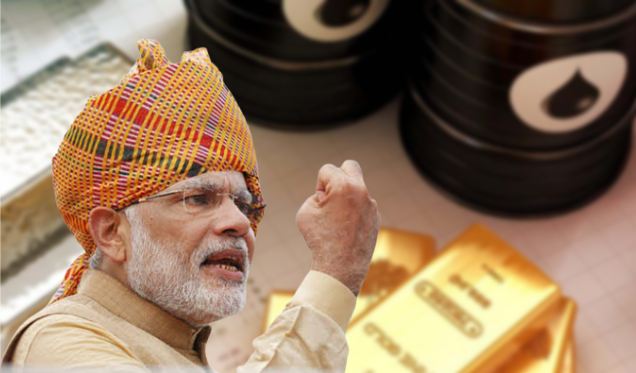In the last few years, supply-side disruption is causing volatility in the global markets. From food to metals, energy to semiconductors, everything is getting costlier due to these disruptions. For the last two years, the world was facing a Covid crisis, and as soon as it seemed that this crisis was over, another crisis started in Europe.
Europe is no longer a very important part of the global economy, but Russia is among the world’s foremost suppliers of energy, metal, and food. Thus, the prices of commodities are going through the roof once again in the wake of the Russia-Ukraine conflict.
The cost of metals like aluminium, steel as well as oil and gas, are rising sharply. Russia’s GDP is half of India’s, but it is the primary supplier of energy and metals. Thus, amid the war and sanctions, the price of these commodities is rising sharply.
India, on one hand, is impacted by the rising global energy prices given its dependence on imports, but at the same time, the companies in the steel and aluminium sector, of which India is a major exporter, will benefit immensely given the rising prices due to supply disruptions from Russia and Ukraine.
Russia exports around 30-33 million tonnes (MT) of steel, said Hetal Gandhi, Director, CRISIL Research. “In the event of worsening tensions and resultant supply disruptions, the deficit is expected to be filled by other export economies including India. Hence, in the short term, Indian steelmakers are likely to benefit as export potential rises,” Gandhi said.
Jindal steel and power, one of the major producers and exporters of steel, is expected to benefit from the ongoing crisis in Europe. “There are many steel mills in Mariupol that mainly export billets, slabs, hot rolled coils. They may not be in a position to export and that may cause a shortage in MENA countries,” said Jindal Steel & Power managing director, V R Sharma.
“The steel industry in India should ramp up production by 5-10 percent to meet the additional demand. We should make products available not only to India but the rest of the world,” added Sharma.
On the side of the non-ferrous metal, aluminium producers are expected to benefit majorly because Russia is the primary supplier of this metal to Europe and many middle-eastern countries. “Sanctions on Russia will impact the metal output from the nation. In addition, Russia also supplies gas to Europe and these supplies, if impacted, will further increase the already high energy prices, forcing the European smelters to further cut production of aluminium,” said Gandhi.
The Indian steel and aluminium companies should make efforts to capture the European and American markets which are dependent on Russia for supplies. In a sense, they will be compensating for the loss we are making on oil imports due to this crisis. The Indian government made a wise decision by not getting caught on either side and focusing on its interest. For India, the biggest concern is the two-front war that it faces from the side of China and Pakistan.
The country must focus on becoming Aatmanirbhar in crucial areas such as energy, semiconductors and take lead in emerging areas such as new energy, electric vehicles, and general-purpose technologies like Artificial Intelligence. The defence exports need to be reduced and state of art indigenous weapons should be produced. The single-minded focus should be to make India Vishwa-Guru by 2047 when we complete a hundred years of independence.
